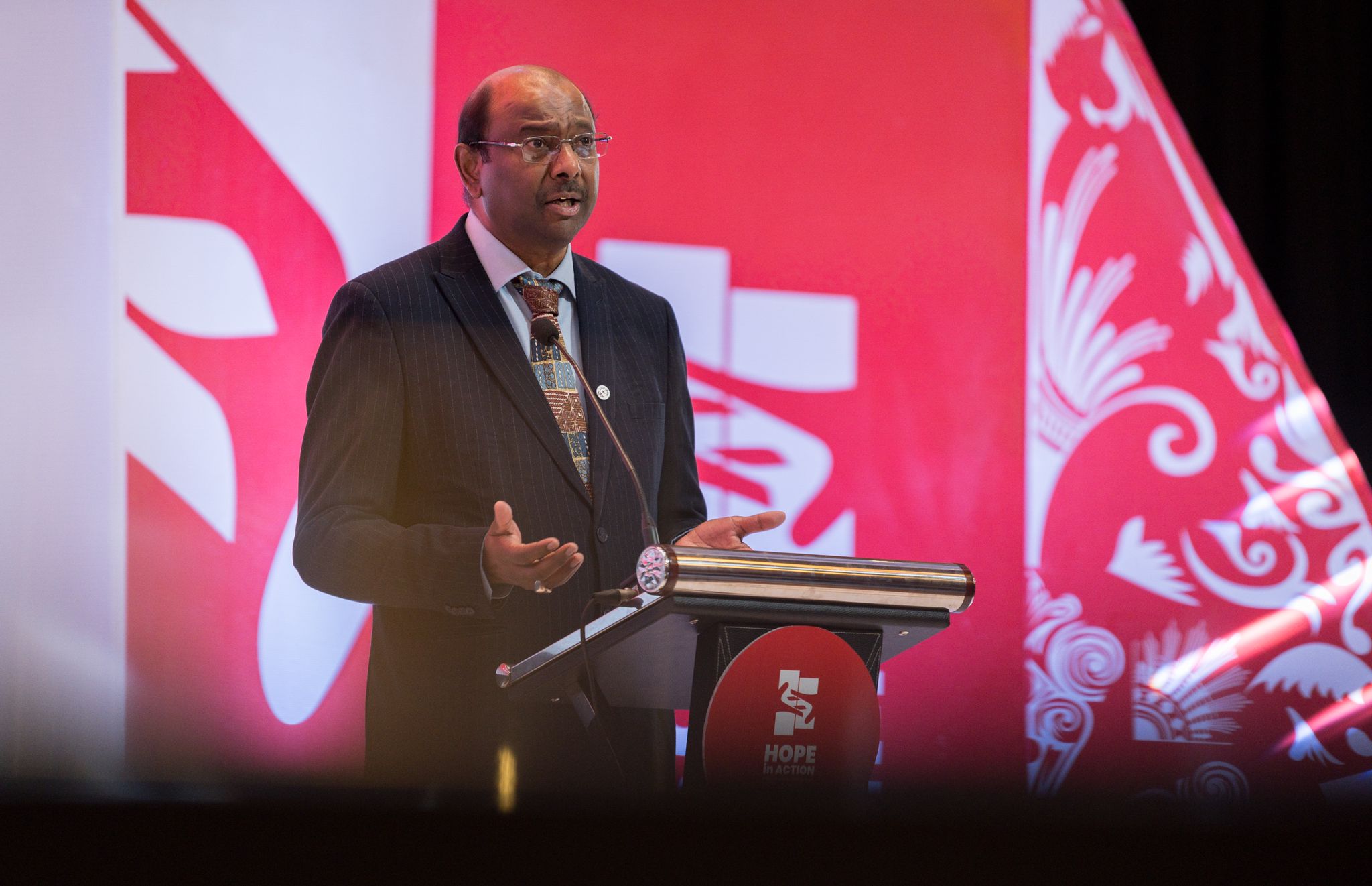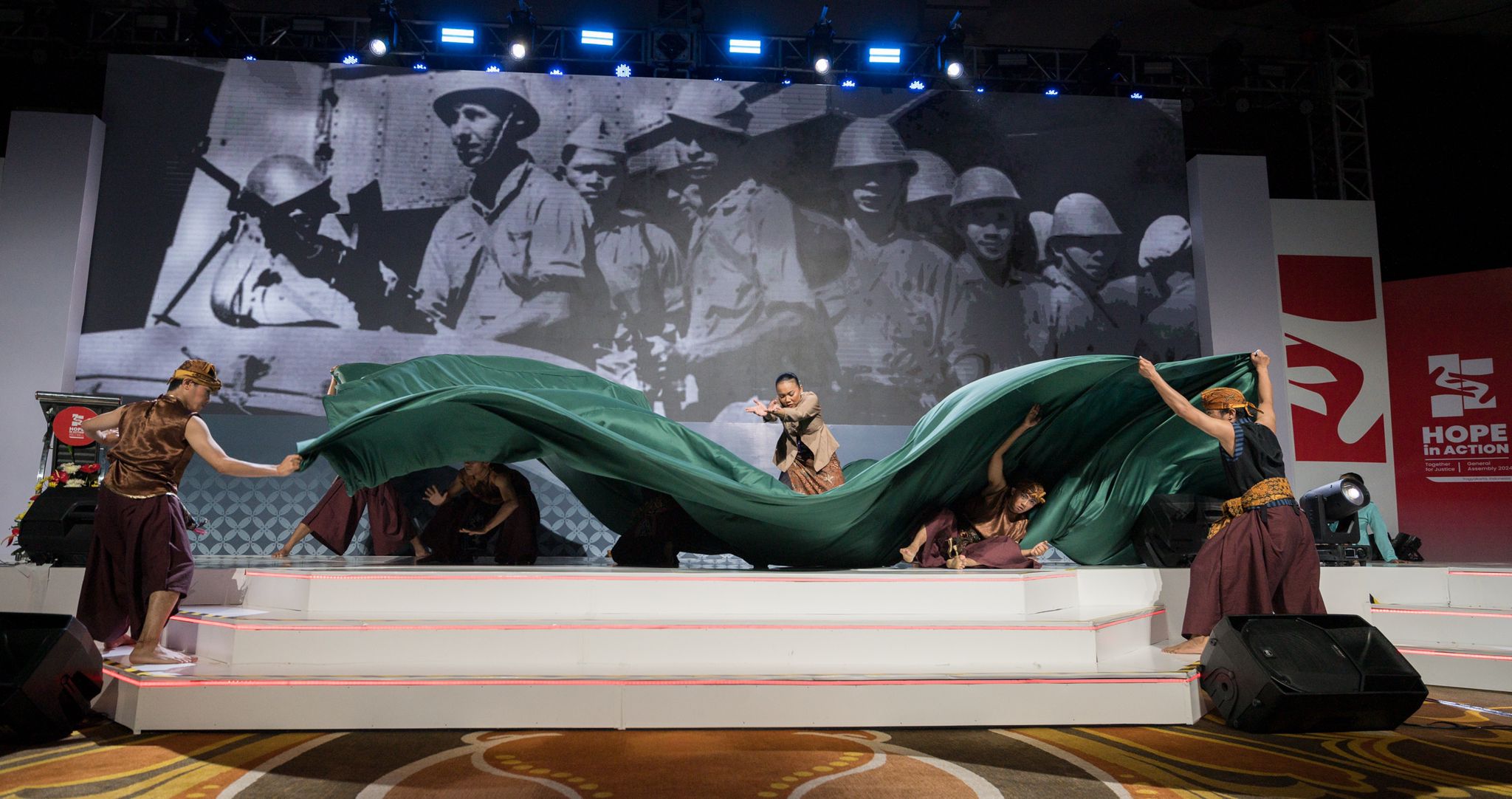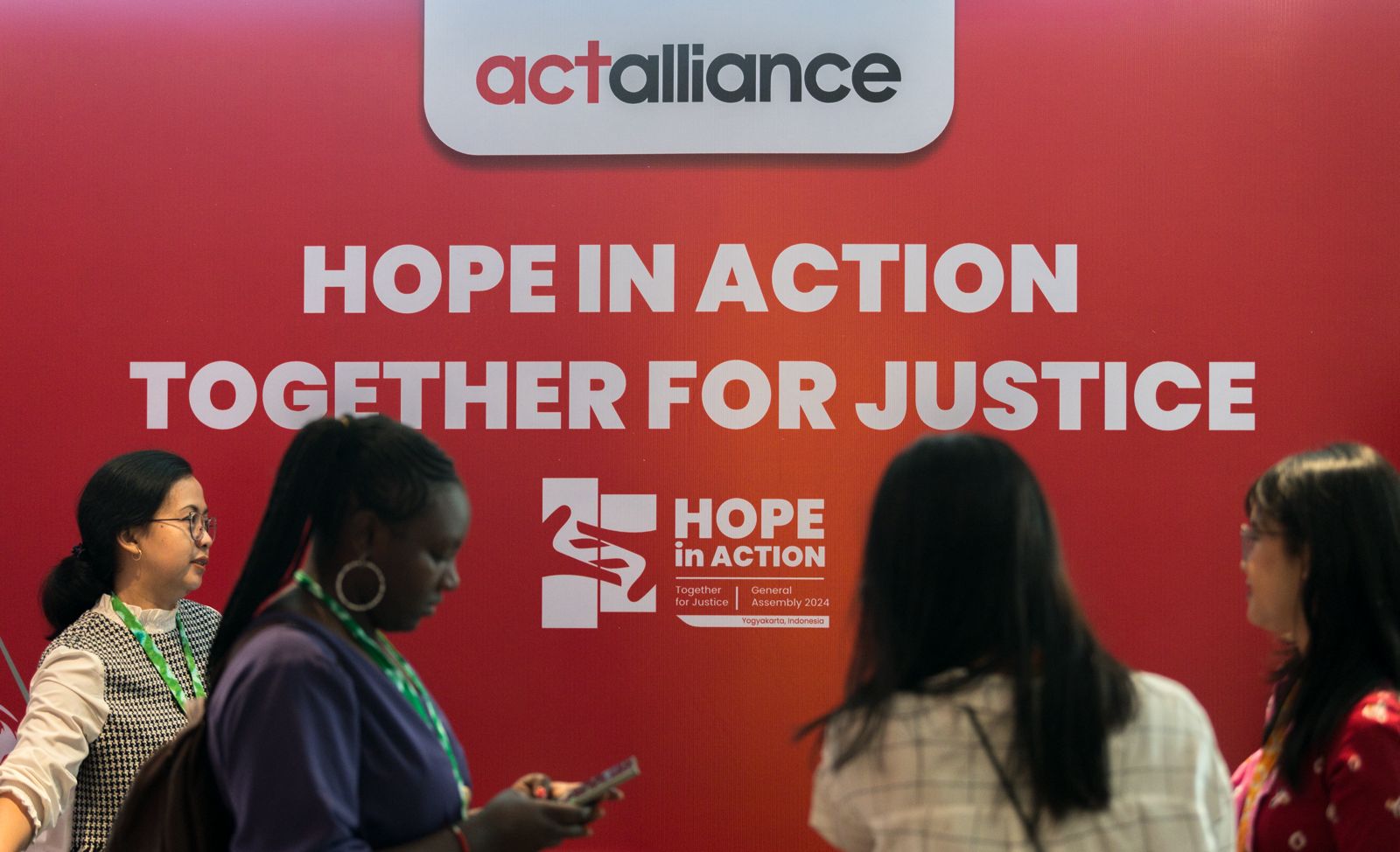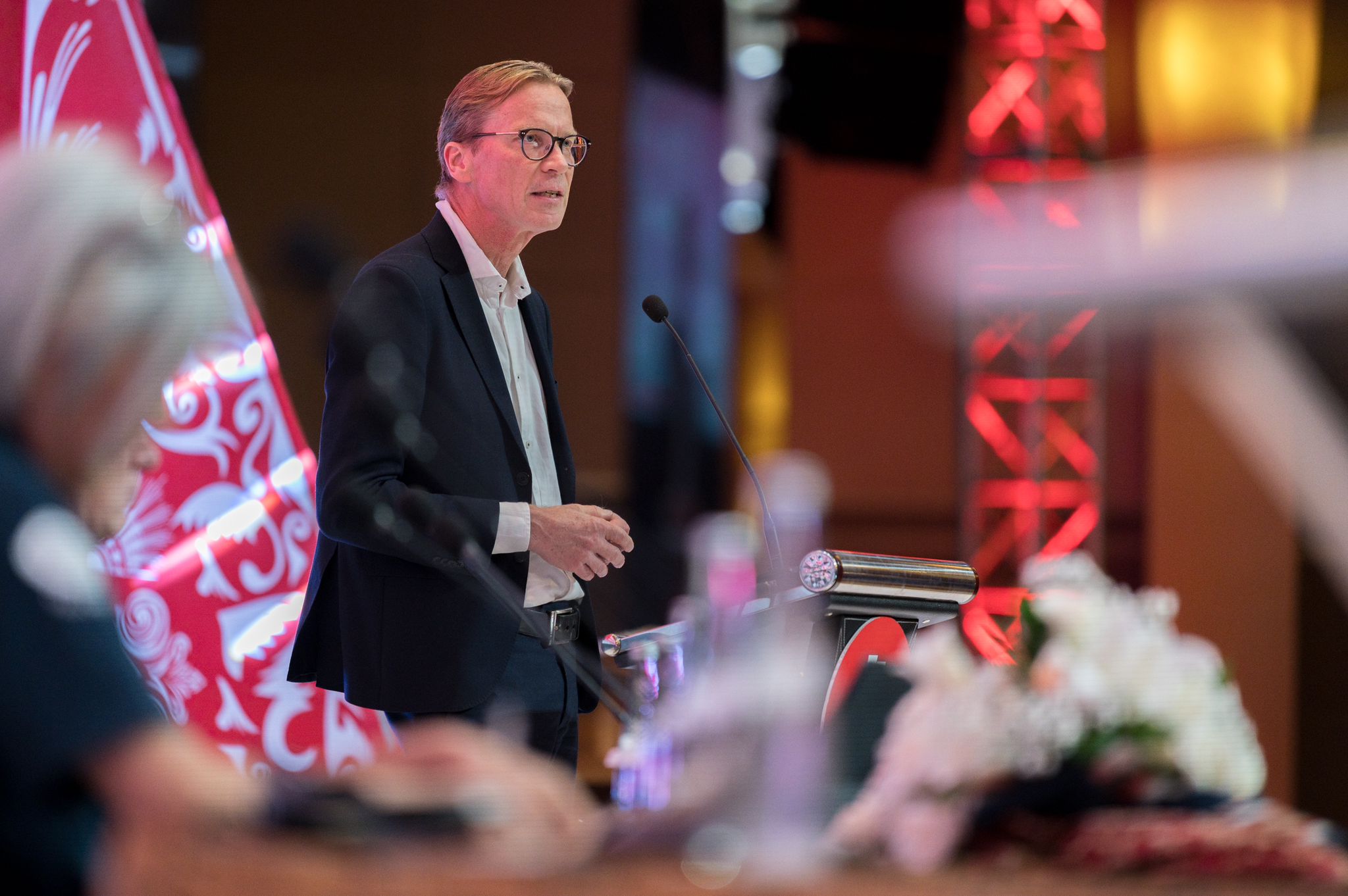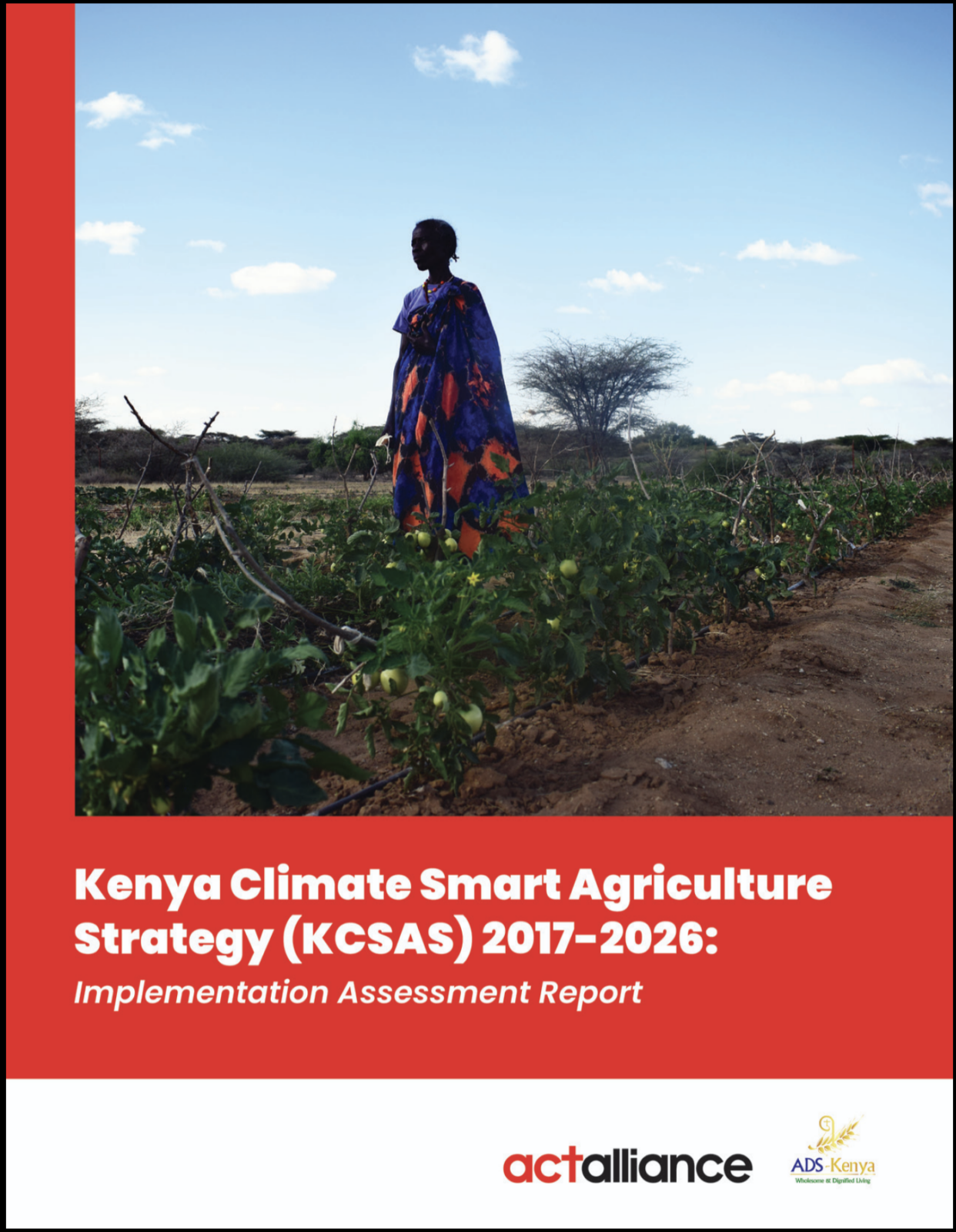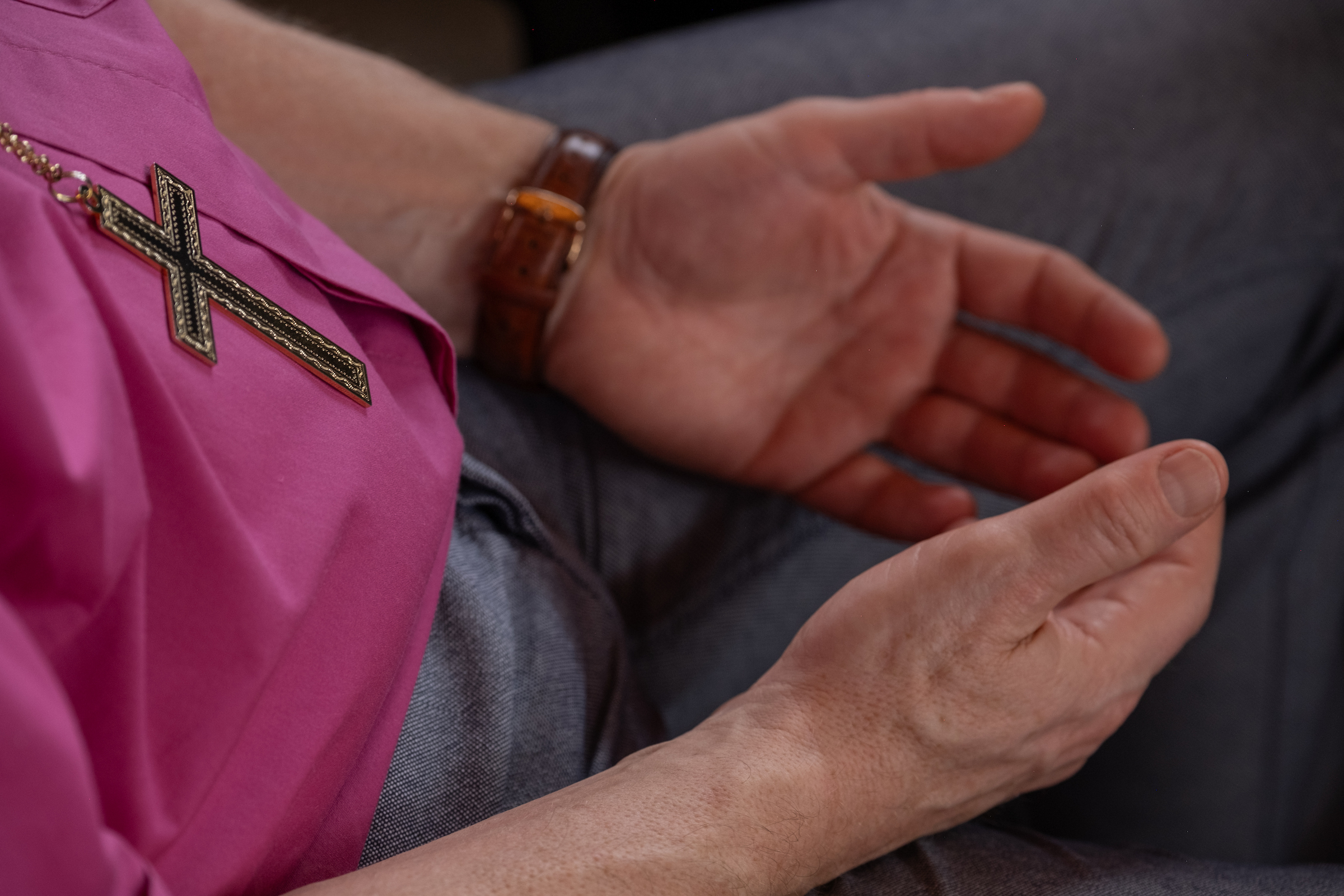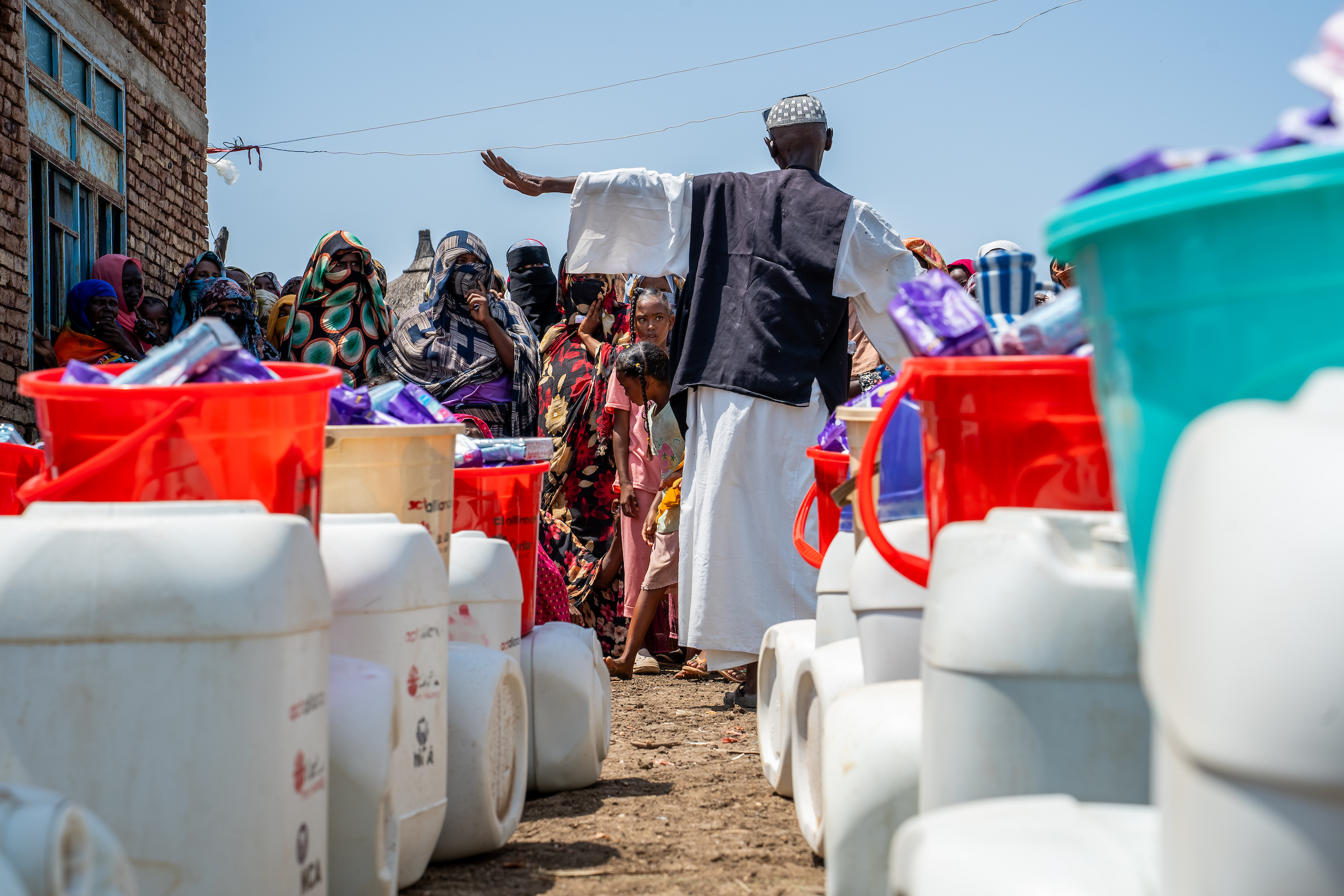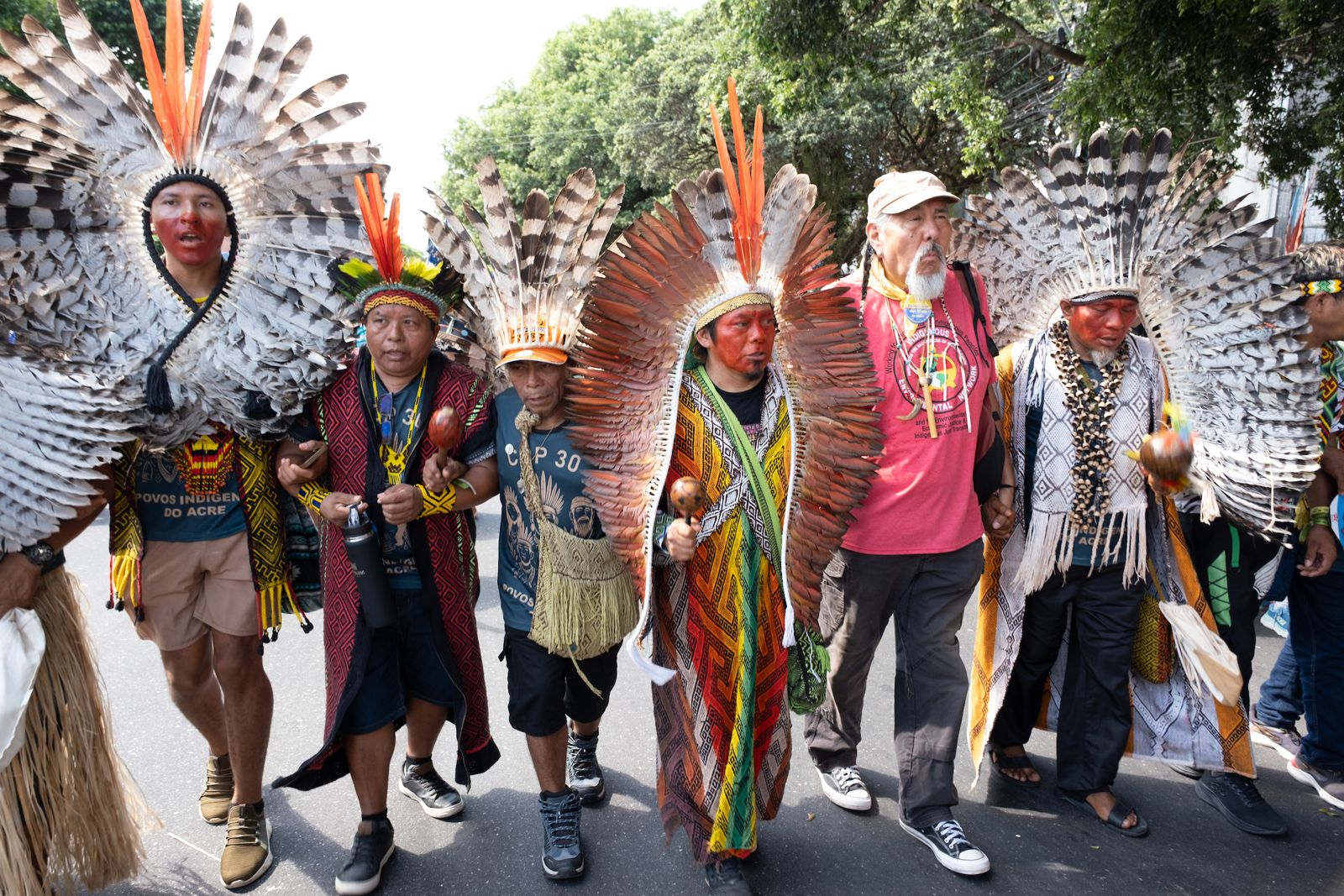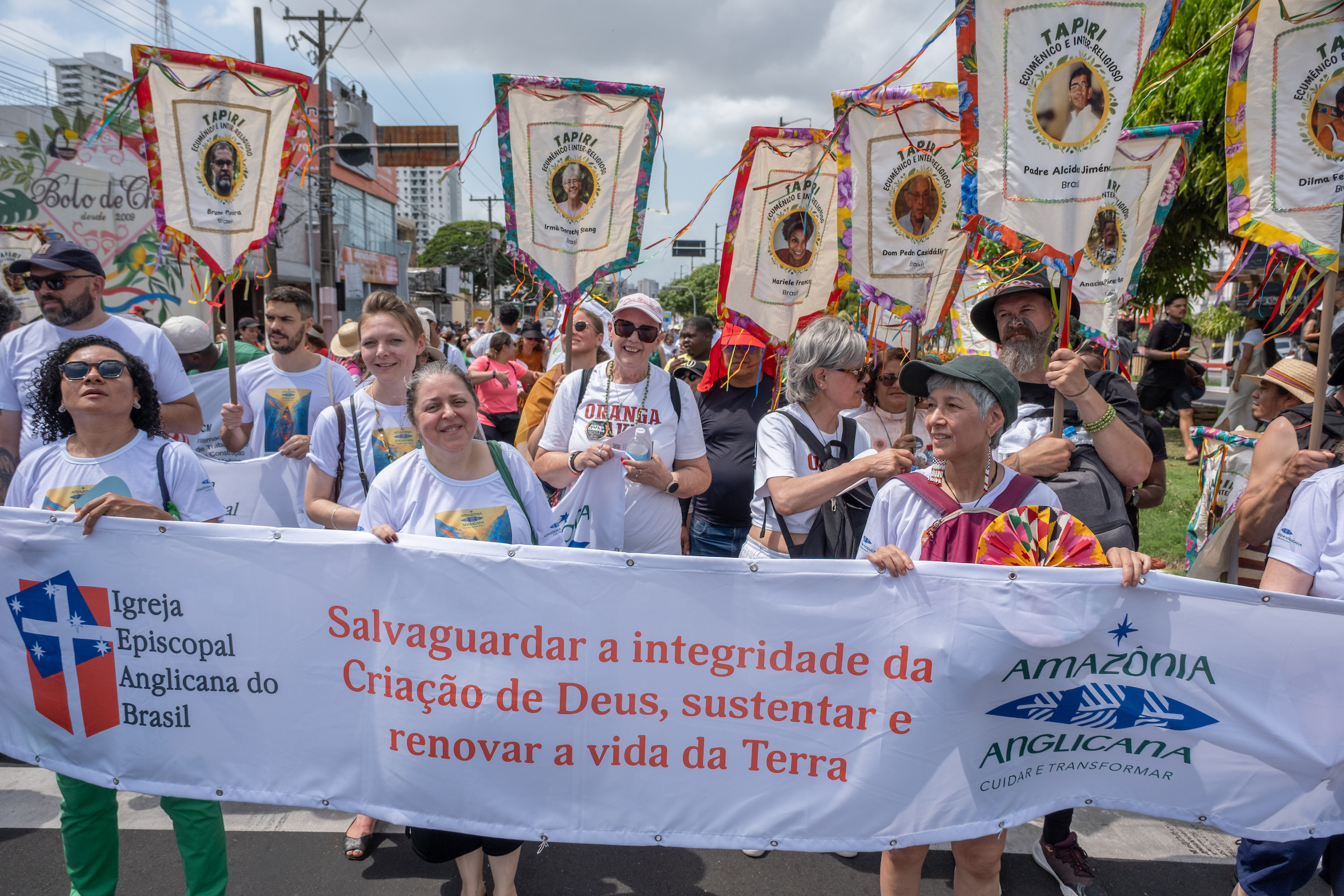An atmosphere of excitement and camaraderie filled the Kasultanan Hall just before the official opening of the 4th ACT Alliance General Assembly. Over 300 delegates from across the globe have gathered in Indonesia for this event.
In a crowded meeting room, Rev. Prof. Dr. Jerry Pillay, General Secretary of the World Council of Churches (WCC) and the Assembly’s moderator, welcomed the ACT Alliance members to Yogyakarta.
“With gratitude, I want to affirm the ACT Alliance as a gift to the world and to the ecumenical movement,” he said.
“ACT is an essential partner of the WCC fellowship of member churches and an important witness to justice, peace, human dignity and development in the world,”he continued.
ACT is an essential partner of the WCC fellowship of member churches and an important witness to justice, peace, human dignity and development in the worldRev. Prof. Dr. Jerry Pillay General Secretary of the World Council of Churches (WCC)
Pillay expressed his deep concern for “the signs of the time” and trends from the past that are reappearing. “Millions of women, children, and men are in conflict zones and under kleptocratic leadership where they lack access to basic services”, he denounced. “The ministry of diakonia is more needed than ever,” he said and underscored the key role of faith-based organizations and churches who “are on the frontline of saving lives, sheltering those on the move and those in search of refuge.”
The role of churches and faith-based organizations as seekers and protectors of justice is more needed than ever to address the existential crises the global community is challenged by. “The interplay between global warming caused by the continued burning of fossil fuels and unabated natural resource extraction and consumption is tearing apart the web of species and ecosystems that anchor all life, threatening livelihoods, health, food and water sources, as well as intensifying the impacts of natural disasters, harming the most vulnerable and increasing injustices globally.”
“We are running out of time,” he warned.
ACT Moderator Erik Lysén, thanked the hosts of the event, YAKKUM (Christian Foundation for Public Health) and the Indonesia Forum.
He reflected on previous assemblies and highlighted the progress the alliance has made, saying, ‘we’ve come a long way since the first assembly in Arusha, Tanzania, in 2010, where we laid the foundation for a global strategic plan for the alliance.’
Lysén then posed a critical question for the current assembly: ‘How can we foster solidarity and trust in times of polarization and growing fundamentalism? “This question has evolved into a survival issue for humanity. If we continue along the path of mistrust, suspicion and simple solutions to complex problems, conflicts and war – which already are a tragic reality – will just grow in magnitude and scale,” he noted.
If we continue along the path of mistrust, suspicion and simple solutions to complex problems, conflicts and war – which already are a tragic reality – will just grow in magnitude and scaleErik Lysén ACT Moderator
Ms Peni Pramono, vice-chair of the YAKKUM Board addressed the participants and underscored the importance of collaboration among faiths and traditions, “we are here to recommit ourselves to the principles of ecumenism and interfaith collaboration. We have witnessed the power of unity in diversity, and now more than ever, we must continue to build bridges, not walls.”
Pramono, continued by raising a crucial point about the power of localization, “at the global level, we must work to address the pressing issues of our time: climate change, economic inequality, conflict, and displacement. But equally important is our work at the local community levels, where real change takes root.”
As the delegates prepare for meaningful discussions about the future of the alliance, there is a shared sense of hope and determination to work together in service of humanity.
Spanish version
Es tiempo de construir puentes, no muros
Una atmósfera de emoción y camaradería llenó el Salón Kasultanan justo antes de la inauguración oficial de la 4ª Asamblea General de ACT Alliance.
Más de 300 delegados y delegadas de todo el mundo se han reunido en Indonesia para este evento. En una sala de reuniones abarrotada, el Rev. Prof. Dr. Jerry Pillay, Secretario General del Consejo Mundial de Iglesias (CMI) y moderador de la Asamblea, dio la bienvenida a los miembros de ACT Alliance a Yogyakarta.
“Con gratitud, quiero afirmar que ACT Alliance es un regalo para el mundo y para el movimiento ecuménico”, dijo.
“ACT es un socio esencial de la comunión de iglesias del CMI y un importante testigo de la justicia, la paz, la dignidad humana y el desarrollo en el mundo”, continuó.
Pillay expresó su profunda preocupación por “el signo de los tiempos” y las tendencias del pasado que están resurgiendo. “Millones de mujeres, niños, niñas y hombres se encuentran en zonas de conflicto y bajo liderazgo cleptocrático, sin acceso a servicios básicos”, denunció. “El ministerio de diaconía es más necesario que nunca”, afirmó y subrayó el papel clave de las organizaciones y las iglesias basadas en la fe que “están en la primera línea salvando vidas, brindando refugio a quienes que están en migrando y a quienes que buscan refugio”.
El papel de las iglesias y las organizaciones basadas en la fe como buscadoras y protectores de la justicia es más necesario que nunca para abordar las crisis existenciales a las que se enfrenta la comunidad global. “La interacción entre el calentamiento global, causado por la continua quema de combustibles fósiles y el extractivismo y consumo desmedido de recursos naturales, está desgarrando la red de especies y ecosistemas que ancla toda la vida, amenazando medios de vida, salud, fuentes de alimentos y agua, así como intensificando los impactos de los desastres naturales, perjudicando a los más vulnerables y aumentando las injusticias a nivel mundial.”
“Se nos está acabando el tiempo”, advirtió.
El moderador de ACT, Erik Lysén, agradeció a los anfitriones del evento, YAKKUM (Fundación Cristiana para la Salud Pública) y el Foro de Indonesia.
Reflexionó sobre asambleas anteriores y destacó el progreso que se ha logrado, diciendo: “hemos recorrido un largo camino desde la primera asamblea en Arusha, Tanzania, en 2010, donde establecimos las bases para un plan estratégico global para la alianza”.
Lysén planteó entonces una pregunta crítica para la asamblea actual: “¿Cómo podemos fomentar la solidaridad y la confianza en tiempos de polarización y creciente fundamentalismo? Esta pregunta se ha convertido en un asunto de supervivencia para la humanidad. Si continuamos por el camino de la desconfianza, la sospecha y las soluciones simples a problemas complejos, los conflictos y la guerra —que ya son una realidad trágica— solo crecerán en magnitud y escala”, observó.
La Sra. Peni Pramono, vicepresidenta de la Junta de YAKKUM, se dirigió a los y las participantes y subrayó la importancia de la colaboración entre credos y tradiciones: “estamos aquí para reafirmar nuestro compromiso con los principios del ecumenismo y la colaboración interreligiosa. Hemos sido testigos del poder de la unidad en la diversidad, y ahora más que nunca, debemos seguir construyendo puentes, no muros”.
Pramono continuó planteando un punto crucial sobre el poder de la localización: “a nivel global, debemos trabajar para abordar los problemas urgentes de nuestro tiempo: el cambio climático, la desigualdad económica, el conflicto y el desplazamiento. Pero igualmente importante es nuestro trabajo a nivel de las comunidades locales, donde el verdadero cambio echa raíces”.
A medida que las y los delegados se preparan para discusiones significativas sobre el futuro de la alianza, hay un sentido compartido de esperanza y determinación para trabajar juntos al servicio de la humanidad.
